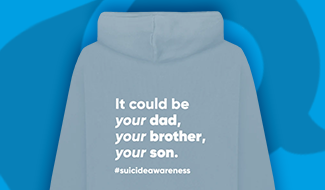They don’t show up, orshow up late almost every time, leaving your childstandingat the window, coat on, asking “how much longer?”. They promise to call or Skype the children…and then don’t. They frequently “forget” to share important information…your daughter had a temperature of 102 degrees over the weekend, or your son scored the first goal of his life. Leaving you seething, and at the same time breaking each time you see them crushed and disappointed by the other parent.
Unreliable parents often don’t seem to realise that their behaviour not only makes it almost impossible to co-parent with them, but also seem oblivious to the damage they are doing to their child.
A child’s relationship with their parents
Children develop their sense of self-worth and their knowledge of the world through their relationship with their parents. A child’s self-esteem is built on the unconscious thought, “I matter and am worthy to the extent to which my parents take an interest in me.” Children operate in quite a binary way – it’sfair/not fair, right/wrong, with the ability to understand the shades of grey that make up life not being developed until towards the end of theirteens.
When a parent is unreliable or flits in and out of a child’s life, the child may be emotionally wounded, feeling unworthy and unloved. Their take-away from this experience is the belief that people can’t be trusted, which will have profound effects on their emotional development and will make it hard for them to form secure attachments later on. They downgrade their expectation of love, questioning its value. They’re filled with anxiety, guilt or shame, they struggle to trust.
Some may even demonstrate these feelings of unworthiness through disruptive and/or destructive behaviour. They turn inward with depression – or act out in anger, fear or despair. Long term this can result in the inability to form close relationships, dependence on alcohol or drugs, and depression.
But there are things you can do to ease the pain for your children, ameliorate the damage and actually use it as a positive learning experience for your children.
Communicating with your ex
Tell the other parent that their relationship to the children is important. They may feel that your don’t value their relationship with your children, and therefore not see their behaviour as being that much of an issue.
Remain calm. Do not reveal your anger or frustration to your children as this will only increase their bad feelings and guilt. However, do talk with your children about their feelings. Reassure them that you love them. It is OK to explain that their parent’s actions are a reflection on difficulties they are having and not a reflection on the children. Do not disparage the other parent. When you bad-mouth the other parent, you bad-mouth your children because they know they are 50% of each of you.
You may wonder why your child still loves or even idolises a parent who is unreliable, and this will inturn feel hurtful to you when you are the one that is always there. As I said above; your ex, no matter how terrible, is still “half” of your child. So to your child if that parent is “bad” then this means that they must be “bad” as well. In order for them to feel good about themselves, they may need to ignore their other parent’s bad qualities and focus on the good ones. Be the adult and don’t make them feel guilty for adoring your ex. Give them permission to love their other parent. As they get older, your child will acquire a more balanced view. Be the bigger parent. Remember that you love your children more than you may dislike (or even hate) your ex, and so you do it for them.
Acknowledge how their other parent’s behaviour makes them feel. Tell them “this has nothing to do with you, but I know it hurts your feelings. I’m sorry.” Use this as a great learning opportunity and talk to your children about what they can’t control (other people) and what they can control (their own actions and thoughts).
Always have a back-up plan. Make sure that your children are not left with nothing to do, allowing them to focus on their upset and get disruptive due to bad feelings. Direct their focus and energies into a positive activity that will make them feel good about themselves.
Be an open door for their feelings. Let your child know that they can come to you with their feelings and questions. And let them know it’s also OK not to talk, if they don’t want to.
Children have differentways of dealing with painful feelings; often coming out in bad behaviour or anger. It may be too overwhelming right now for your child to speak about the other parent. Bring up the subject from time to time, but don’t pressure your child to have a conversation if they don’t want to talk. You just want them to get the message that you are always available to listen and that whatever feelings they have are OK and they are entitled to them.
Disappointment is a part of life, and we shouldn’t insulate them from it. The key though is to keep them from seeing the disappointment as a reflection of their worth. Use this as a powerful learning experience. Help them understand the situation and make sure their time remains full. This will ease the impact of the situation and teach them the life skills of managing their emotions and how to deal with other disappointments that they will face in life; without going into the default thought of “it must be me”.
Posted on March 27, 2019
















